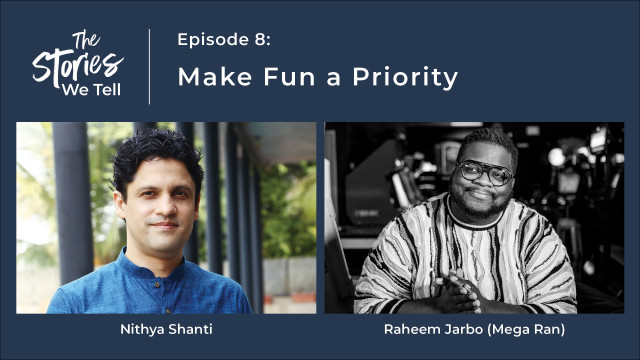How can we enrich our financial wellbeing by slowing down?

There’s no magic formula for making money. However, I offer the following financial advice to those I care about: find something you’re passionate about, turn it into a useful skill, and money will likely follow.
We don’t always cherish the journey enough; when we focus on the destination, it makes us forget that financial security should be a by-product of our work, rather than a goal in itself. In this age of uncertainty, Financial Wellbeing is more important than ever. Let me take you through what I learned about financial wellness throughout my decades-long journey as an entrepreneur.
Find your passion.
My passions can be traced to my childhood and to the way I was brought up. My parents have always been kind and giving, which made me want to follow in their footsteps. At first, I didn’t know exactly what “my thing” was going to be, or how I was going to help people; it became clearer as the years progressed. I remember being at university in Montana and thinking about how unjust it is that some are not able to afford the healthcare they need. That’s when the seeds of my first startup were planted; seeds that would eventually sprout into the HealthTech company Edifecs, spurred by the desire to democratize healthcare access in the United States.
Start researching potential opportunities within your area of interest.
Once you find out what you’re passionate about, begin doing your research. How can your skills be useful for others? This is the only way to maximize the chances your eventual work or business will be successful. Passion on its own is great, but it doesn’t necessarily yield the outcomes you may need.
Be prepared to work smarter, not necessarily harder.
This is what Tim Ferriss’ bestselling book, The Four Hour Work Week, addresses. Delegation and elimination is vital, but also remember, as Ferriss explains, that you should “never automate something that can be eliminated, and never delegate something that can be automated or streamlined. Otherwise, you waste someone else's time instead of your own, which now wastes your hard-earned cash.” That’s a real incentive to be effective and efficient, isn’t it?
Remember, also, that it’s incompatible with Wholistic Wellbeing to work all the time. When you work, work, work, you’re likely to be stressed out, tired, and not in the best shape, which means you may be making mistakes. You may be over-stretching yourself for no reason at all. Moreover, exploring life outside of work, whether it’s reading a work of fiction that has nothing to do with your office job or going out and seeing friends, allows you to strengthen vital skills for the workplace: perceptiveness, sensitivity, communication and attention to detail. So plan, execute, remember to include a wellbeing session here and there, and make sure your workload doesn’t turn to an over-workload.
Financial Wellbeing is often associated with something that cannot be taught, and the very notion of it may sound insensitive to some who view it as inaccessible. I believe in speaking out, as this topic should be taught in schools, so children can grow up to be well-adjusted, content adults, who, on the one hand, can be financially secure, and on the other hand, don’t get sucked into a world that forces them to work at the expense of their health, relationships, and mental wellness. Wholistic Wellbeing is the key.






